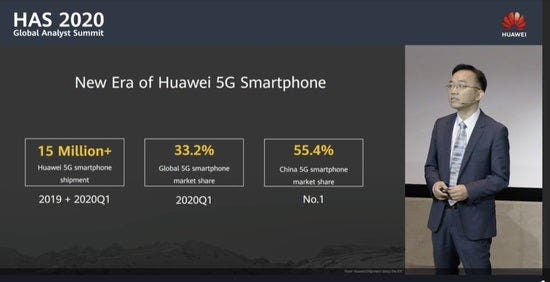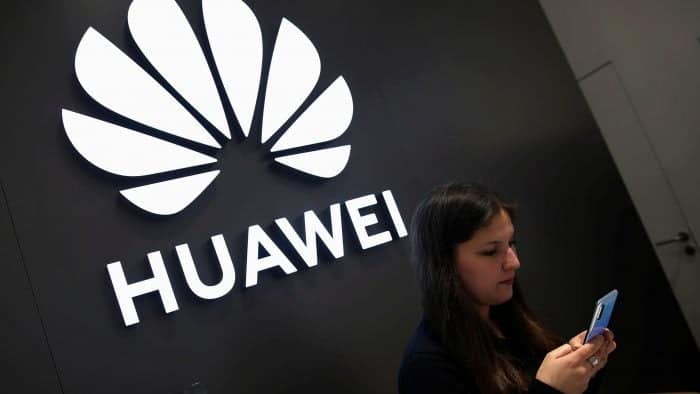The Huawei Global Analyst Summit 2020 held recently. At the summit, One of Huawei’s VPs shared the company’s progress in the development of 5G smartphones. According to him, as of the first quarter of 2020, Huawei’s 5G smartphone shipments hit 15 million units. Huawei currently tops the Chinese 5G market.

With these shipments, Huawei has 55.4% of the Chinese 5G smartphone market. In addition, it has 33.2% of the global 5G mobile phone market. As of May 2020, Huawei has released more than 19 5G mobile phones. Most of its 5G smartphones sell for between 2,000 yuan ($281) to 16,000 yuan ($2251).
According to the latest report released by market research agency, Strategy Analytics, global demand for 5G mobile phones surged in the first quarter, and its shipments in the first quarter of this year exceeded 18.7 million units. From this shipment, Samsung’s shipped 8.3 million units, with a market share of 34.4% ranking first while Huawei, including Honor, shipped 8 million units, with a market share of 33.2% ranks second. The likes of Vivo and Xiaomi shipped 2.9 million units (with a market share of 12%) and 2.5 million units (with a market share of 10.4%) respectively.
In other news, Huawei is still at loggerheads with the U.S. government. Actually, the company is keeping its cool but the U.S. government seems to be stiffening the ban on Huawei. Its mobile phones cannot use Google Mobile Services (GMS) since its inclusion in the U.S. entity list last year. In its latest announcement, the U.S. government said that any company that uses US technology must obtain a U.S. license before working for Huawei. This means that the likes of TSMC which is behind Huawei’s Kirin chips can not take orders from Huawei.
The Chinese manufacturer is seeking viable alternatives for all U.S. technology and so far it is not doing badly. The latest restriction from the U.S shows that Huawei is not falling as the U.S. government had hoped. A recent report claims that it had placed huge orders to the tune of $700 million from TSMC. It is also working closely with SMIC (a Chinese chip maker). These should keep the company floating until it gets a viable alternative.






good riddance